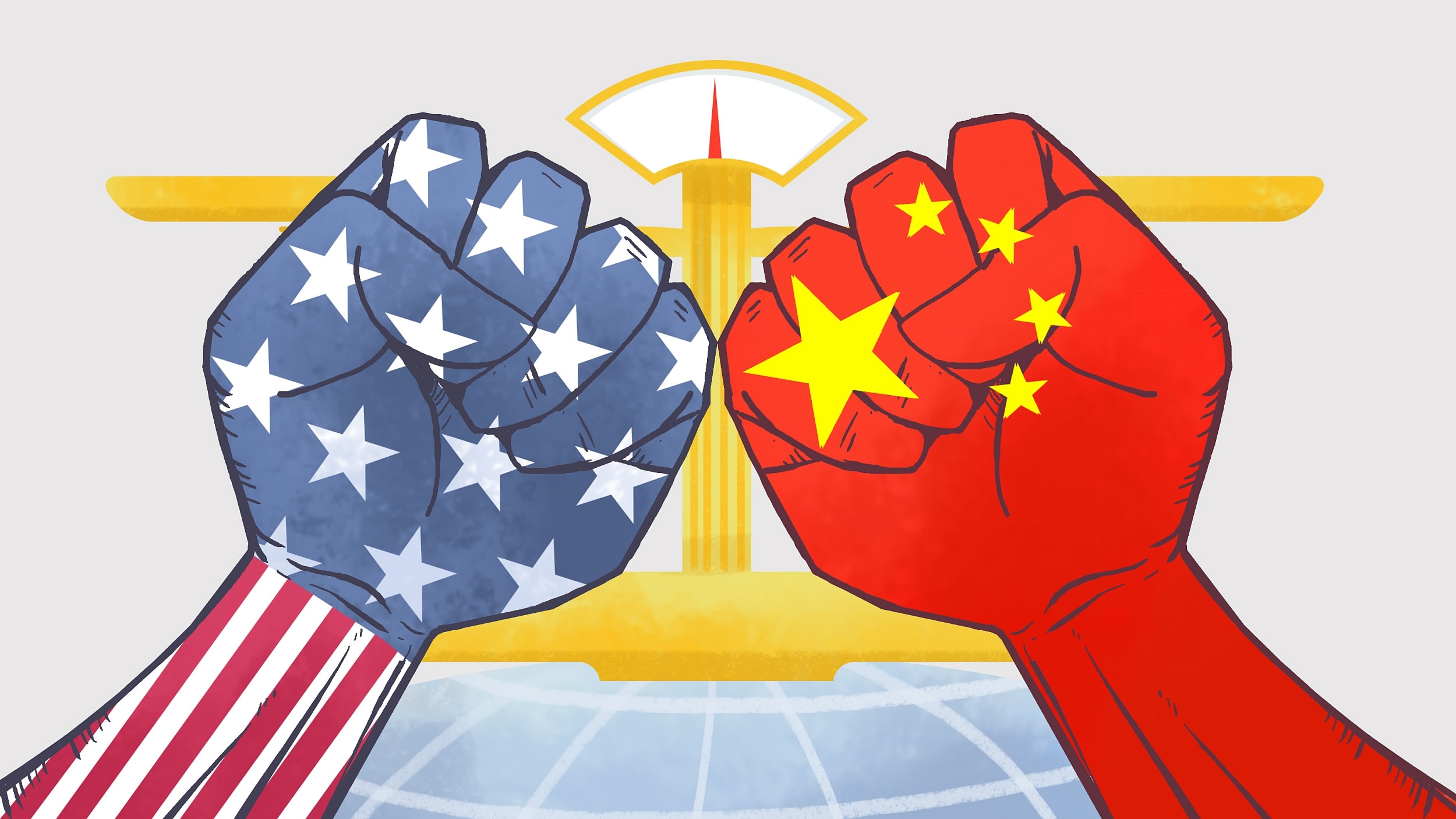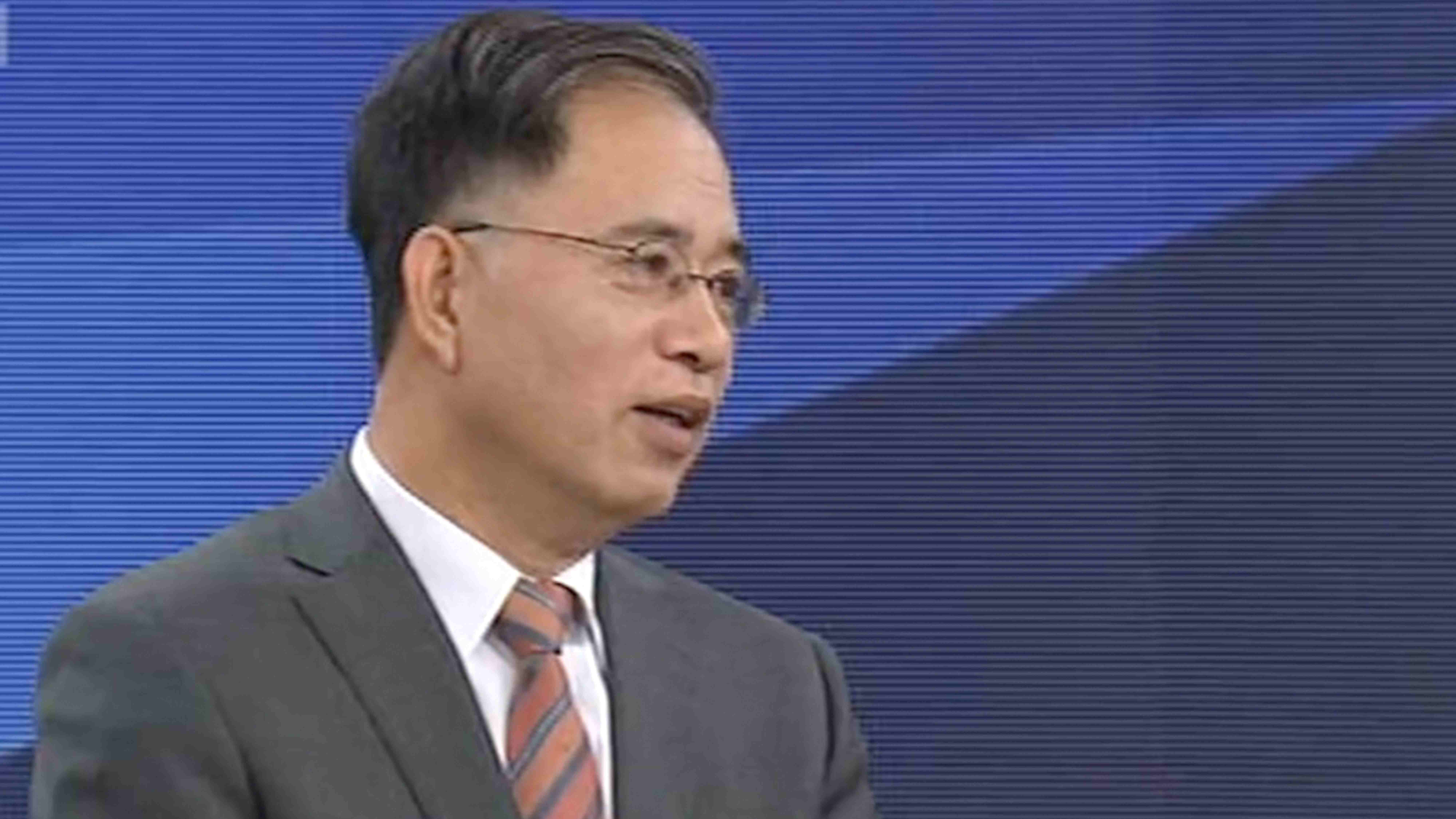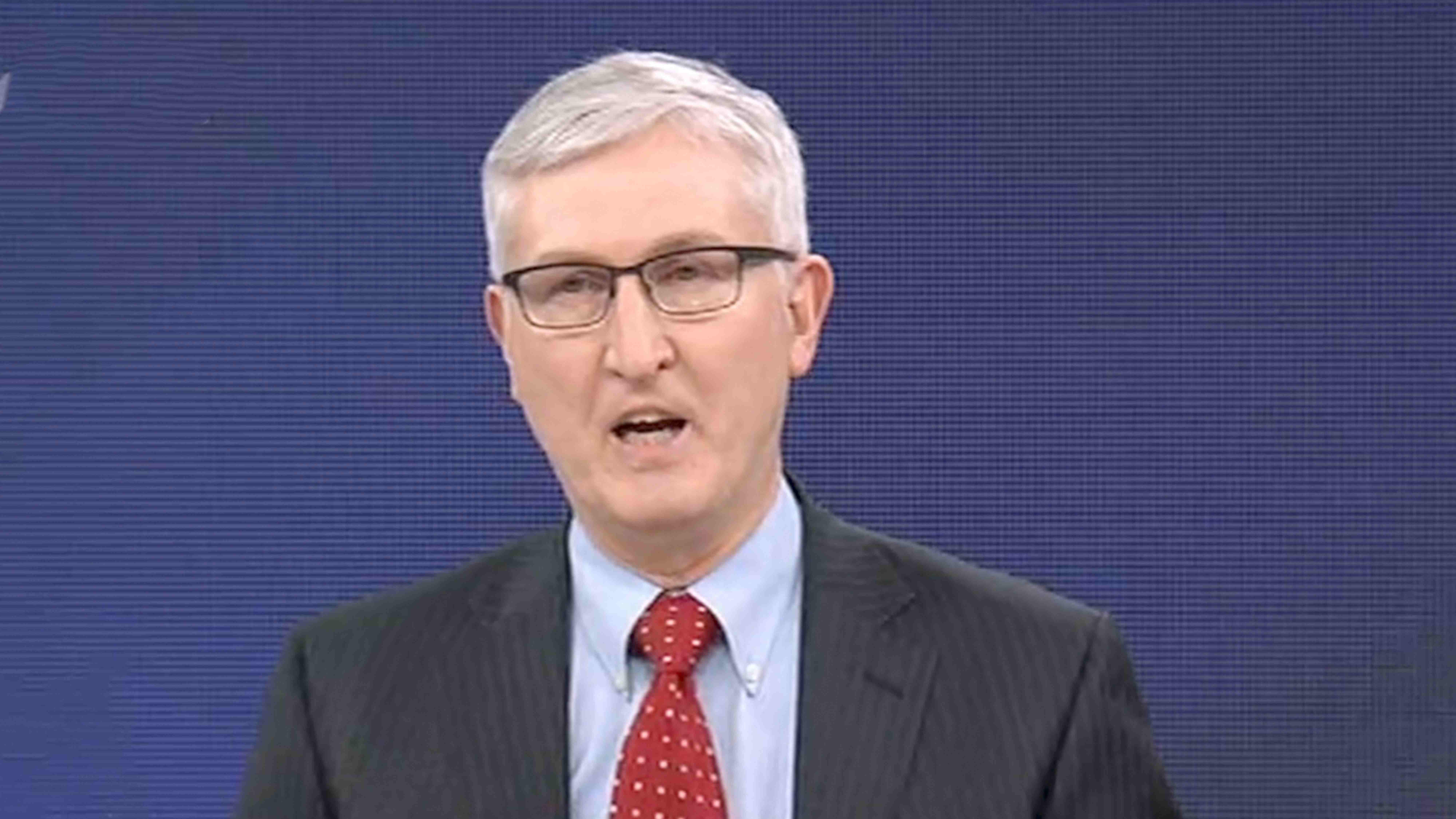
Opinions
11:42, 19-Mar-2018
China-US trade relationship: Is there light at the end of the tunnel?
CGTN

By CGTN’s The Point
“It seems more of a political goal that the US feels that the trade deficit (with China) could be reduced by this amount (100 US billion dollars). It would be seen very positively, but we haven’t heard any more detailed explanation than that,” said Timothy Stratford, managing partner of Covington & Burling LLP, an international law firm in Beijing.
The Trump administration wants China to cut its trade surplus with the US by 100 US billion dollars. This comes after Trump's steel and aluminum tariffs that target its major traders. The Trump administration is also reportedly considering a clampdown on Chinese investment in the US and yet more tariffs.
“This is really a contradictory issue,” said Liu Baocheng, a professor at the University of International Business and Economics. “If there are more Chinese investments being allowed into the US, that could substantially reduce the trade deficit.”

“We were lectured to create a market economy and to conduct free trade with the US, and now we are getting more aggressive as a market force and getting more competitive. This is the evolving trend of the entire global value chain, to which many US companies voluntarily – given the attractiveness of the Chinese market – shift their production to China, and export back to the US. It’s still, in a way, contributing to the US income,” Liu explained.
While most worry that the US’ sanctions towards China could trigger a trade war between the two and bring a disastrous impact to the world economy, US President Donald Trump said trade wars “aren’t so bad,” adding that the war wouldn't hurt the US but others. Responding to the US demands, China’s Commerce Minister Zhong Shan said: “China doesn’t want and will not start a trade war, but it is able to deal with any challenges.”
“If the US imposes trade sanctions on China, if China retaliates, we can each demonstrate the capability to harm one another. I think we can all agree that we do have the capability, but it doesn’t solve anything,” Stratford added.

“I think we need to look towards the light at the end of the tunnel, and the light would be understanding the differences in our economic systems and recognizing what adjustments we need to make so that our economic relationship can be fair and balanced and beneficial to both sides,” Stratford concluded.
The Point with Liu Xin is a 30-minute current affairs program on CGTN. It airs weekdays at 9:30 p.m. BJT (1330GMT), with rebroadcasts at 5:30 a.m. (2130GMT) and 10:30 a.m. (0230GMT).

SITEMAP
Copyright © 2018 CGTN. Beijing ICP prepared NO.16065310-3
Copyright © 2018 CGTN. Beijing ICP prepared NO.16065310-3